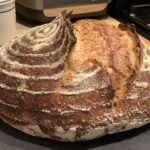In the movie Say Anything, Lloyd Dobler (played by John Cusack) famously said, “I don’t want to sell anything, buy anything, or process anything as a career. I don’t want to sell anything bought or processed, or buy anything sold or processed.” It’s a humorous moment, but there’s something profound hidden in Lloyd’s rebellion. He was rejecting a world obsessed with efficiency, productivity, and, above all, convenience.
Tim Wu, in his New York Times article “The Tyranny of Convenience”, argues that convenience is the most underestimated and insidious force shaping our lives. He says, “Convenience decides everything.” It’s not just about making life easier.
Convenience rewires our priorities.
Convenience changes our habits.
Convenience dictates our values.
Most of our modern dilemmas—our environmental crises, our disconnection from others, even so many personal dissatisfactions—stem from our relentless search for convenience.
Look around: our entire economy thrives on convenience. Businesses flourish not by making us better, but by making things easier—streaming platforms so we don’t have to go to the movies, meal kits that reduce the burden of cooking, fast fashion so we don’t have to care for or mend our clothes, even pre-sliced fruit so we don’t have to pick up a knife. But in this constant pursuit, I wonder: do these conveniences make us better people? Better parents? Better friends? Better citizens?
Convenience was morality’s most cunning foe.
The truth is, so much of what makes life rich and meaningful is inconvenient. It’s the inconvenient work that teaches us patience, builds character, and invites us to reflect. It’s in the slowness of planting a garden, the labor of raising children in community, or the discipline of learning a craft. Convenience robs us of that.
Take bread, for example. I bake sourdough. It’s anything but convenient. Done well, it takes days—cultivating natural yeasts, letting the dough rise, waiting. The bacteria and yeasts transform the grain, making it healthier, more digestible. But baking bread isn’t just about the end product—it’s the process. It forces me to slow down, to make time. It’s inconvenient, and it’s better because of that.
The same is true of so many other parts of my family’s life. Hosting dinners for friends and neighbors—making the conscious effort to build community—takes time and energy. It would be easier to meet people at a restaurant or stay home alone, but sharing a meal in our home creates deeper connections.
Similarly, building sauna fires to warm both ourselves and our neighbors is work—splitting wood, lighting the fire, maintaining it—but it’s a ritual that brings warmth not just to our bodies but to our relationships.
And when something breaks, whether it’s a tool, an appliance, or even a piece of furniture, I try to repair it rather than replace it. It’s time-consuming, sometimes frustrating, but it’s an act of care and stewardship.
Becky Chambers, in her novel The Galaxy, and the Ground Within, puts it perfectly: “Convenience was morality’s most cunning foe.” It tempts us to choose the easy path, the quick fix, the shortcut—but at what cost?
So, I ask: What inconvenient joys have you traded for convenience? And how might we reclaim those spaces where the hard work of life—the slowing down, the reflection, the learning—makes us better, not just faster?

